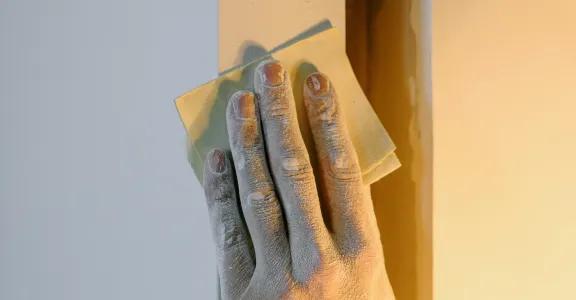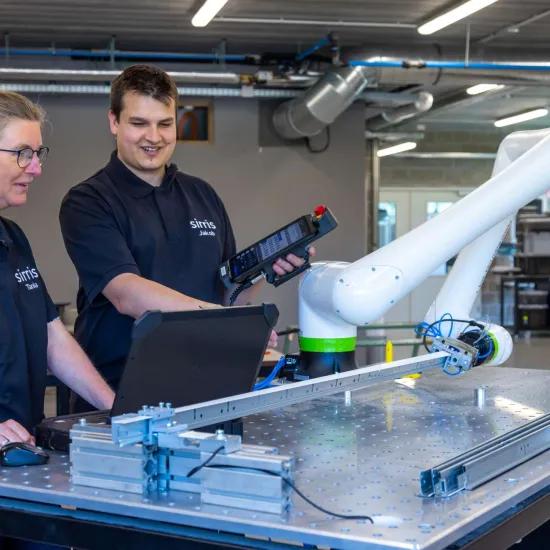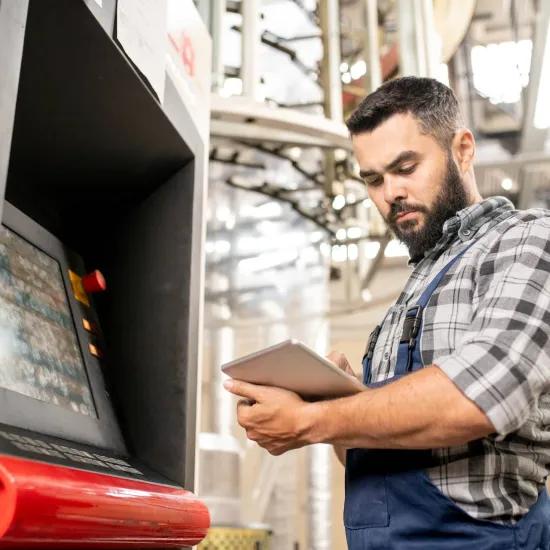"The sanding process we currently use for our Solid Surface washbasins, shower trays and wall panels can no longer meet increasing customer demand. How can we best tackle the automation and optimisation of this process?" Group Nivelles contacted Sirris to study this question together.
Group Nivelles N.V. – a family business – manufactures and distributes bathroom furniture, solid-surface shower walls, washbasins and wall panels, as well as a patented shower and washbasin drainage system. Due to increasing demand, the company relocated the entire business to Gingelom, where the production area for the high-quality 'Solid Surface' composite material was further expanded in 2018.
A successful labour-intensive product
Solid surface products are manufactured in open or closed moulds, depending on the type of product. After curing and demoulding, a manual sanding process using an orbital sander removes imperfections and ensures the desired appearance and smoothness. The current sanding process is not only labour-intensive but is also ergonomically demanding. The presence of small dust particles in the operators’ immediate work environment is unavoidable, despite the use of a professional extraction system. Operators are therefore required to wear dust masks. The increasing demand for solid surface walls and the labour-intensive manual processing results in a bottleneck in production. Automation is a question of time.
Despite large production volumes, the wide range of products limits batch size in practice. It was not easy for Group Nivelles to find a suitable solution, due to the numerous requirements and prerequisites.
Semi-automation
Group Nivelles and Sirris have worked together to develop the ideal total automation solution. Specifications were drawn up to achieve this aim. The numerous requirements did not simplify the quest for complete automation. A sub-optimal solution would not offer an acceptable ROI (return on investment).
Group Nivelles therefore considered the semi-automation of the sanding process using cobots and force-controlled sanding modules. A feasibility study was scheduled based on Sirris’s experience with cobots and force-controlled processes. The early results seemed promising.
Although this does not represent the total solution Group Nivelles is aiming to achieve in the long term, it could be a first step towards familiarisation with robotics. This interim solution requires a lower investment, leading to an acceptable ROI with smaller product batches. If Group Nivelles wishes to extend the automation process to other product groups once this process is semi-automated, a much less significant change is required than it would be now.
Ease of use
Ease of use remains one of the most important specifications when considering future automation. The feasibility test carried out by Sirris assessed not only the quality of the sanding process, but also whether it can be implemented and its ease of use.
The practical data gathered is enabling Group Nivelles to take a strategic, substantiated decision.
(Image: Group Nivelles)





